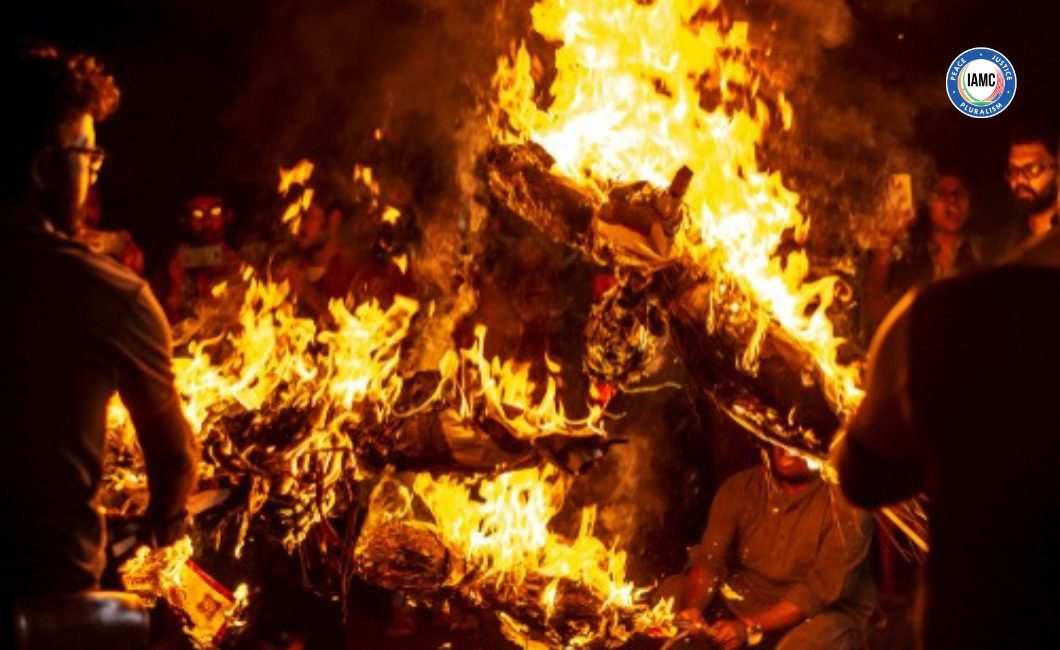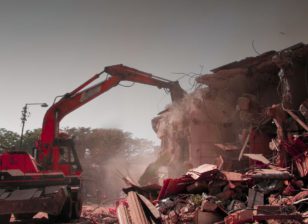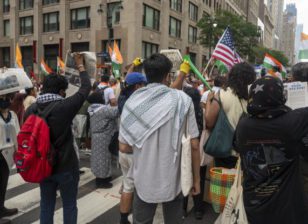State Department Report: IAMC reiterates call to designate India as CPC, sanction officials engaged in TNR, human rights violations
Washington, D.C. (April 24, 2024) –The Indian American Muslim Council on Tuesday reiterated its call that US Secretary of State Antony Blinken designate India as a Country of Particular Concern (CPC) and sanction Indian government officials complicit in the violations of human rights and religious freedom as detailed in the Department of State’s 2023 Report on Human Rights Practices.
IAMC also thanked the State Department for recognizing the Indian government’s many cases of transnational repression, including against IAMC and its coalition partner Hindus for Human Rights by banning both groups’ X (formerly Twitter) accounts in India, and by falsely accusing their members of being funded by George Soros and Pakistan-based organizations.
“We are grateful that the State Department takes attacks by the Indian government against American citizens seriously,” said Ajit Sahi, IAMC Advocacy Director. “In light of this and a plethora of other human rights abuses mentioned in the report, both against Indian minorities and the diaspora, we call on the State Department to designate India as a Country of Particular Concern and enact sanctions against its most vitriolic and dangerous government officials.”
The report highlights “significant” human rights abuses, including violence against ethnic and caste minorities, extrajudicial killings, punitive home demolitions, the weaponization of the Unlawful Activities Prevention Act (UAPA) against critics of the government, and serious restrictions on freedom of expression and the press, including violence against journalists, unjustified arrests of journalists, and censorship. Alarmingly, the report noted 813 cases of extrajudicial killings between 2016-2022; 8,000 arrests between 2015 and 2020 under the UAPA; and the demolition of at least 43,000 homes between March 2020 and July 2021.
Transnational repression by the Indian government against journalists, civil society activists, and human rights defenders also received significant attention. In addition to the censorship of IAMC and HfHR, the State Department highlighted the targeting of IAMC New Jersey President Tazeem Ansari and HfHR Executive Director Sunita Viswanath by Indian Cabinet Minister Smriti Irani and IT Cell Head of the Bharatiya Janata Party (BJP) Amit Malviya; the Indian government’s alleged assassination of a Sikh Canadian citizen, Hardeep Singh Nijjar; harassment and intimidation of Indian civilians whose overseas family members are critical of the government; and social media censorship of individuals in the diaspora.
The report also highlighted several notable case studies showing the extent and severity of human rights abuses in India. This includes the ongoing ethnic and religious violence, including sexual violence, in Manipur state, particularly against the vulnerable Kuki-Zo tribal population. The State Department noted that “armed conflict, rapes, and assaults in addition to the destruction of homes, businesses, and places of worship” led to the deaths of at least 175 people and displacement of over 60,000 between May 3 and November 15. The State Department also noted the “failure of the central government” to prevent and halt the violence.
Also highlighted was ongoing state repression in Jammu and Kashmir, including forced disappearances of civilians, the arrest and detention of Kashmiri human rights defenders, and the intimidation and harassment against individuals and civil society organizations, including human rights defenders and journalists.
Additional case studies mentioned included the cases of political prisoners Umar Khalid and Umar Farooq; the murder of three Muslim train passengers by security official Chetan Singh, who declared support for Modi before the killings; and the politically motivated murder of former parliamentarian Atiq Ahmed while in police presence, which was listed under cases of extrajudicial killings.




